Explore the ScaleUp Annual Review 2023
Select a section to expand and explore this year's review..
CONTENTS

Introduction 2023

Chapter 1 2023
The ScaleUp Business Landscape

Chapter 2 2023

Chapter 3 2023
Programme
Creative Destruction Lab – Oxford [2023]


Infrastructure
Impact for scaleups

233
founders supported

£1.3 bn+
equity value created by CDL - Oxford participants

716+
jobs created

58
projects were completed with the support of the CDL-Oxford Students
Key sectors

Newly endorsed by the ScaleUp Institute in 2023 the Creative Destruction Lab (CDL) – Oxford offers early stage and scaling businesses support for the different challenges in their scale-up journey through mentorship from select entrepreneurs and angel investors, technical advice from CDL’s Chief Scientists, and business development support from MBA students. Part of a network of 12 CDL sites spanning Europe and North America, CDL – Oxford bridges the gap of support between universities and spinouts, building the future pipeline of scaleups.
A vibrant community of entrepreneurs, investors, scientists and industry experts gives founders feedback on business strategy and tactics to accelerate growth. Participants access advice on technology roadmaps, technical feedback and advice on technical validation from world-renowned experts from leading academic institutions.
The mentorship element gives participants access to entrepreneurs and angel investors drawn from CDL’s network of fellows and associates. Intensive full-day mentoring sessions take place every eight weeks and focus on immediate business priorities, as well as realistic objectives and KPIs for resolving them. These are then reviewed at the next session, creating a continuous process of objective delivery and impact assessment.
Scaleups also receive business development support from MBA students through the Creative Destruction Lab Student Programme where students collaborate closely with founders on bespoke challenges. This includes developing comprehensive financial projections, analysing market opportunities, and optimising growth strategies to achieve long-term success. Additionally, CDL Mentors provide founders with access to their own networks of talent and can help advise on potential future hires.
Programmes take place within streams grouped around industry sectors and global opportunity areas. CDL offers 20 streams worldwide, of which five are Oxford-based. These include an AI stream, a Fintech stream focused on secure financial services and technology, and a Climate stream that aims to build profitable, investable businesses to commercialise technologies that meaningfully contribute to solving this global challenge. Two Oxford-global streams focus on advanced therapies – including cell and gene therapies, biologics, antibody-drug conjugates, and other biological products – and the space sector.
The nine-month programme also features a series of four immersive full-day sessions conducted on-site at Saïd Business School. These are designed to facilitate objective setting, foster growth and drive progress amongst participating scaleups. It culminates in an annual Super Session. This involves over 1,000 CDL mentors, investors, scientists, entrepreneurs and policymakers along with global business leaders.
Since its creation, the CDL-Oxford programme has facilitated the creation of over £1.3 billion in equity value and has contributed to the creation of over 716 jobs by CDL-Oxford alumni businesses. In 2021/2022 58 projects were completed with the support of the CDL-Oxford Students through the CDL-Oxford student programme. To date, the CDL global ecosystem has facilitated the creation of £16.6 billion in equity value, signifying the success and growth of ventures nurtured within the program. CDL has welcomed over 4,282 ventures from 90 countries.
I absolutely recommend applying for CDL to any founder transforming technologies from the forefront of research into applicable solutions that will shape society’s future. The programme is not only professionally organised and challenging, but the entire CDL journey is accompanied by an amazing team.Philipp Adamidis, QuantPi
The CDL programme reinforced our belief that we can scale on another level, especially after meeting and speaking to the world class mentors supporting us during the programme. The mentors on this programme are proven, they have built, scaled and exited companies on a huge scale and in some cases multiple times. Our engagement with the mentors is continuing and it’s given us a solid network of support which we can reach out to for any guidance during the scaling of our company. Amar Rana, CrediCar
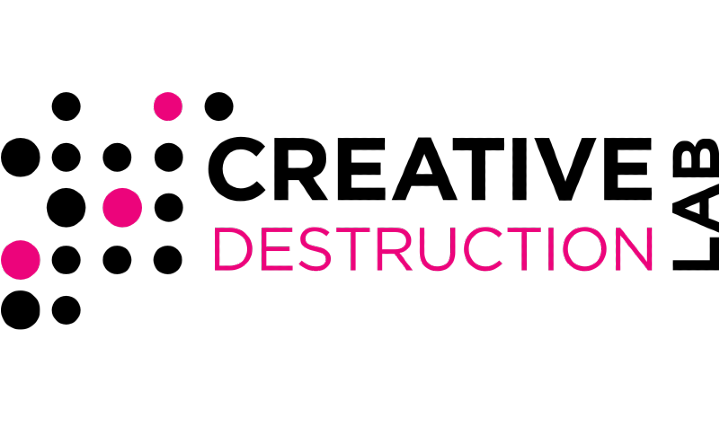
Programme
Interface [2023]


Infrastructure
Impact for scaleups

£311.2m
additional GVA

4,789
jobs created

3,439
business-academic collaborations initiated since 2005

257
supported to access expertise and facilities in the last 12 months

1,380
new/improved products, processes and services developed
Key sectors














Newly endorsed by the Scaleup Institute in 2023, Interface connects ambitious and scaling businesses with Scotland’s academic knowledge base, creating opportunities to collaborate with leading thinkers and world-class expertise. Its mission is to deliver environmental, economic and social prosperity in Scotland and is committed to generate innovative approaches supporting the transition to a net-zero carbon society.
Interface’s support is delivered in two key strands. These are facilitating introductions to academia and enabling access to the knowledge, skills, facilities and technologies of universities, colleges and research institutes. It also raises awareness of resources and funding opportunities available in support of the development and delivery of collaborative projects.
Scaleups benefit from introductions to academia in accessing laboratory space, workshops and highly specialised equipment and in-house expertise. Through its networks and knowledge of the Scottish innovation ecosystem, Interface signposts scaleups to accelerators, hubs and the wider business support ecosystem.
Participating scaleups can also access talent through collaborative projects with universities, colleges and research institutes, students, graduates, and early-stage career researchers are exposed to scaleups and support their business challenges.
Interface also supports funding for scaling businesses. From August 2018 to January 2023, Interface facilitated 1,446 collaborative projects.
Created in collaboration with the Scottish Government, its Inward Investment Catalyst Fund (IICF) attracts and supports scaling businesses not yet located in Scotland to collaborate with Scottish academic institutions. It funds up to £10k of academic time and facilities, and gives insight into further investment opportunities, supply chains, new markets and the skills base.
Standard Innovation Vouchers support scaleups to develop new products, processes and services and vouchers are also available to support workforce innovation. Vouchers of £1k – £5k are available and must be match funded. Student Placement Innovation Vouchers of up to £5k give scaleups the opportunity to continue their collaboration with Scottish universities, working with PhD and Masters students, covering expenses and project costs. And Advanced Innovation Vouchers – delivered in partnership with Scottish Enterprise- offer match funded grants of up to £20k to build sustained collaboration between scaleups and academia.
Sector specific grant funding supports key Scottish Government investment priorities, including support for scaleups in the food and drink sector. These include the Healthier Products Innovation Fund for Scotland, developed in collaboration with the Food and Drink Federation Scotland, and the Scottish Food & Drink Net Zero Challenge Fund in collaboration with Scotland Food & Drink.
Innovation Vouchers awarded to collaborations brokered by Interface contributed to the development of 553 new or improved products, 450 new or improved processes and 377 new or improved services as well as two improvements to supply chains.
According to their latest economic impact report, Interface has generated an annual net additional impact of £311.2 million GVA and supported 4,789 jobs. This implies that each £1 invested in Interface has generated £5.17 GVA for the Scottish economy; the average cost/job supported by Interface has been £10,772.
We have built a great relationship with UWS across two projects so far and look forward to continuing to build this relationship in the future. We have gained access to world class research expertise and are now looking at the potential to integrate a brand new, completely novel sensor into our device that will have real benefits for patients, health services and Current Health.
Christopher McCann – CEO, Current Health
…working with Interface was like having my own R&D team, they regularly sent on funding opportunities, opportunities to undertake further engagement with universities, sought connections into other commercial applications for our tech and overall widened our networks both academically and commercially.Lorenzo Conti, co-founder, Crover Ltd
Programme
SETsquared Scale-Up Programme [2023]


Infrastructure
Impact for scaleups

£57m
GVA between 2018 - 2023

£7.5 : £1
ROI

£713m
investment secured 2018 - 2023

£72m
collaborative R&D funding

62%
of participating scaleups collaborated with an academic from a SETsquared university
Key sectors














SETsquared is a world-leading university-business network, directly linked to the research talent and expertise of six partner universities – Bath, Bristol, Cardiff, Exeter, Southampton and Surrey. Scaling businesses from across the UK are supported by its dedicated Scale-up programme, endorsed by the ScaleUp Institute this year as it connects scaling businesses with university research and collaborative research enhancing their scaleup journey. It was first launched in 2018 and addresses key scaling barriers, including securing public grant and private investment funding for company-led R&D and innovation; while also helping them to access its network of more than 2,000 academics to identify the right expertise to develop or validate their technology.
The programme offers three distinct areas of support consisting of:
- General support including innovation ‘workouts’, impact ‘workouts’, masterclasses and curated opportunities to meet investors and customers;
- Targeted support to identify university collaborators, develop and win CR&D bids; and
- Support to raise equity investment.
There is also a range of opportunities to access bid support which helps build compelling collaborative R&D bids alongside scaleup partner universities. Dedicated support in identifying suitable public grants and bid writing had a 36% success rate, compared to the Innovate UK average success rate of 10%.
Although Research England Connecting Capability Funding (CCF) ceased in June 2023, the programme is now evolving into a package of support, funded through thematic government funding opportunities and support is now being embedded in major regional & national collaboration research and innovation programmes. It can be accessed via an online platform, the SETsquared Innovation Platform, developed as a hub for all members to share with one another and access dedicated support through exclusive investment, funding and collaboration opportunities, events, peer-to-peer networking and sector-based programmes based on the previous format of the programme. It currently has 600 active users.
Additional support for university spinouts was offered through its Executives into Business (EIB) programme. This included recruiting business executives to lead strong and innovative companies spinning out from SETsquared partner universities. This was delivered in partnership with the Northern Accelerator Programme, a collaboration between North East universities to commercialise research and boost the region’s economy. Ten EIBs were placed. SETsquared is utilising the knowledge developed in this intervention to increase the speed of spinouts being brought to market from the research base of the six Universities in a CCF programme called Impact IP.
The programme’s independent evaluation report, published in September 2023, found that on leaving the programme participants report a 20% average annual growth in turnover and employment. Programme members have secured £713 million in private investment and received £72m collaborative R&D funding. 62% of the scaling businesses collaborated with an academic from a SETsquared university. Since 2018 participants have directly contributed £57million of GVA to the UK economy – indicating a £7.5 return per £1 of CCF invested in the programme. It is estimated these companies will contribute £1.3bn GVA to the UK economy by 2030.

Programme
Alderley Park [2023]


Infrastructure
Impact for scaleups

250+
Resident companies

3,500+
Employees

400+
Scaling support sessions in 2022 [988 in total to date]

X2.5
Businesses raise 2.5 times more investment than equivalent firms

£3.8m
Invested into infrastructure in 2023
Key sectors

Bruntwood SciTech’s Alderley Park provides over 1m sq ft of state-of-the-art office and lab space to a vibrant and fast growing community of businesses in the life sciences and tech sector. Alderley Park supports over 250 companies from start-up to scaleup on site including national institutions such as Cancer Research UK and the Medicines Discovery Catapult.
As part of the Park’s £247m ongoing development plan, 2023 saw £3.8m invested into 35,000 sq ft of redeveloped workspace at the campus. This, alongside 2022’s £20m investment into 86,000 sq ft of new biology and chemistry labs, provides additional space for scaling companies.
Resident scaleups have access to Alderley Park’s flexible infrastructure and scientific services, providing the facilities to achieve their growth potential. Coworking laboratories provide access to specialised equipment operated by an experienced laboratory management team through an easy and low cost set up process. This includes access to highly specialised suites from surgery to level 2 containment and bio-imaging and dedicated vivarium space.
The campus’ accelerator offers commercial workshops, personalised one-to-one support sessions and access to specialist expertise for scaleup entrepreneurs and leaders. Workshops include a focus on scaling challenges, leadership skills and development along with support accessing finance and international markets.
In 2023, Bruntwood SciTech launched the Biospheric Network from Alderley Park to support the ongoing growth of onsite scaleups This network sees established entrepreneurs and senior executives provide funded growth-oriented support – including access to finance, deep sector-specialised networking, and business consultancy – to some of the most promising businesses in the life science sector.
In addition, scaling life sciences businesses on site and across the wider region can pitch for funding of between £50k to £2m from the Greater Manchester & Cheshire Life Science Fund run by Praetura and backed by Bruntwood SciTech, GMCA and Cheshire & Warrington LEP.

Programme
Babraham Research Campus [2023]


Infrastructure
Impact for scaleups

2,000+
Size of the community

£5bn+
Market value of campus companies

c.£500m
commercial investment raised in 2021/22

£286m
GVA impact of the Campus on UK economy

3 months
Average time saving for companies raising funds
Key sectors

Babraham Research Campus is a highly connected, sustainable and dynamic ecosystem. It is focused on creating new discoveries, therapeutics, jobs and growth to support the UK economy. It aims to be a leading sustainable ecosystem and one of the best places in the world for discovery bioscience research and innovation. It brings together world leading bioscience research and business to accelerate scientific discovery and to help build and scale businesses.
Scaleups are part of a supportive campus infrastructure and have access to laboratories and offices via short-term leases, giving them the opportunity to grow into larger spaces when they evolve. The Accelerate@Babraham bioincubator programme provides additional support for early-stage life science scaleups and is recognised by Labiotech as one of the top 25 such incubators in Europe. The five-month programme includes tailored scientific, business, and technical support, free lab space, access to the Cambridge Cluster network, investor introductions and access to £10k of non-diluted funding. To join the programme, companies undergo an annual competitive application and pitching process. Up to five early-stage ventures are selected as part of each cohort to experience life as part of the Babraham Research Campus.
Additionally for scaleups seeking investment, the annual Babraham Investor Conference, last held in September 2023, provides a collaborative and information environment that brings together hundreds of investors, companies and industry leaders in order to facilitate access to venture capital investment.
In October 2023, the Campus announced that, in partnership with BioMed Realty, it will be opening a new 34,000 square feet purpose-built facility in order to address the growing demand for lab space in Cambridge. Key tenants moving into expansive scale-up labs within the new building, scheduled to open in early 2024, include scaling businesses Xap Therapeutics and Mosaic Therapeutics.
In a 2020 review of the Campus’ economic impact, Campus-based companies estimated that they had on average accelerated their fundraising by three months and increased the amount of funds raised by 10%. It is also estimated that employee numbers of resident firms are around 20% larger than they otherwise may have been due to the Campus location. The total market value of the largest 14 companies on site was calculated to be £5bn.

Programme
Barclays Eagle Labs [2023]


Infrastructure
Impact for scaleups

35
Sites

824
Mentoring sessions

781
Funding readiness participants

£3.519bn
Investment raised by residents and alumni to date

40
Female Founder accelerator participants out of 120 applications

50
Black Founder Accelerator participants out of 399 applications
Key sectors














Barclays Eagle Labs connects, educates and accelerates UK businesses and entrepreneurs through its national network of business incubators and industry experts. This sits alongside a complementary suite of virtual support. Designed to support the UK’s entrepreneurial ecosystem, Eagle Lab’s programmes encompass growth support, access to experts, events and other tailored learning.
Eagle Labs also specialises in positively disrupting key industries, bringing scaleups and start-ups together with key corporate players, industry bodies and leading universities to foster rapid innovation and investment through collaboration. Dedicated programmes cover a range of sectors including games, professional services, health, wellbeing and life sciences, artificial intelligence and climate and nature innovation.
Operating across 35 sites nationwide, Eagle Labs has supported 50 scaleups through two scaleup programmes in the past year. A further 781 participants have benefited from its funding readiness support and 824 from mentoring sessions. In addition, 93 businesses have increased their exposure to international markets and funding through Eagle Lab’s Global Connect programme.
Eagle Labs is also focused on championing diversity in entrepreneurship. Its successful Black Founder Accelerator supported 50 entrepreneurs this year and a further 20 benefited from the 16-week Black Venture Growth programme focused on promoting growth and removing barriers to fundraising. Eagle Labs’ Female Founder Accelerator, AccelerateHER, supports innovative female-led technology companies through a combination of masterclasses, mentoring, networking and specialist tech build clinics. This year, 40 female entrepreneurs completed this 8-week programme.
A total of £3.519bn has been raised by members, participants and alumni since the programme’s inception. In 2023, Eagle Labs was awarded the UK Government-funded £12m Digital Growth Grant. This will fund a suite of services delivered through a panel of best-in-class delivery partners and designed to support the growth of technology start-ups and scaleups across the UK.
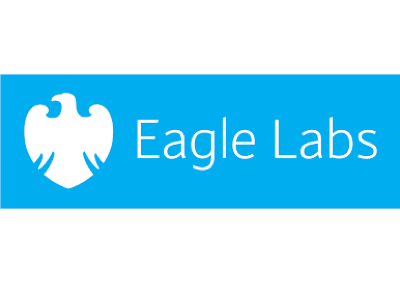
Programme
Cambridge Cluster Insights [2023]


Infrastructure
Impact for scaleups

97,000
Companies identified

205
Scaleups identified

19,013
Employment by scaleups

£3.1bn
Turnover of scaleups

36.3%
Turnover increase of life science scaleups

27.7%
employment increase of ICT scaleups
Key sectors














Cambridge Cluster Insights provides a picture of growth and economic health across Greater Cambridgeshire’s 14 local authority districts. Designed by the University of Cambridge in partnership with entrepreneurs, the tool supports scaling businesses in attracting talent, customers and investors from the UK and overseas. Data and research from Cambridge Cluster Insight informs business support development and delivery across the region. It now includes 97,000 companies and limited partnerships.
In 2022, 205 scaleups were identified in the area, employing 19,013 people and contributing £3.1bn to the local economy. Scaleups in the life science sector show a 36.3% increase in turnover while those in ICT show 27.7% turnover growth.
While all thirteen sectors examined showed growth over the past 12 years, there is considerable variation across sectors. Employment growth in Knowledge Intensive (KI) sectors has increased fastest year on year. Turnover followed a similar trend with a strong post-pandemic recovery. The area has one of the largest concentrations of KI employment in Europe with universities and non-corporate research institutions now employing more than 37,000 people.
The latest update of employment data – completed in April 2023 – captures the impact of the Ukraine war on the Covid recovery and shows strong corporate resilience during a turbulent period. It reveals continued and faster employment growth in Greater Cambridge during the year to mid-October. Growth was driven by the buoyant KI economy which continued to expand rapidly despite supply chain disruptions and inflationary pressures.
Employment growth in non-KI sectors also contributed to the resilience of the Greater Cambridge corporate economy. Sectors severely impacted by lockdowns and other Covid-related restrictions – including hospitality and retail – saw a particularly strong bounce back in employment.
Data and research findings are made available to local councils and other authorities in and across the Cambridgeshire and Peterborough area to inform the development of business support. The data is also used in Cambridge University’s Cambridge Innovation in Numbers statistics that give a snapshot of innovation performance in the city’s technology cluster.

Programme
Engine Shed [2023]


Infrastructure
Impact for scaleups

400+
Companies supported per year

£660m+
Investment raised since start of programme

1,200
Events held every year

300+
Scaleups access and use Engine Shed’s facilities

19
Growth, inclusion, and innovation projects are underway
Key sectors














Engine Shed, based in Brunel’s historic building in Bristol, is the University of Bristol’s leading innovation hub in collaboration with Bristol City Council. The hub brings together ecosystem players from investors, entrepreneurs, business leaders, academics and corporates to drive innovation and foster inclusive economic growth. It provides flexible infrastructure for more than 300 fast-growing companies and has been supporting scaling businesses since 2013.
Amongst resident organisations, the SETsquared Bristol Incubator has supported over 350 innovative scaling companies across multiple different technology sectors. To date, these businesses have raised over £660 million. In 2022, SETsquared Bristol provided support to over 85 high growth businesses across 20 tech sub-sectors. These businesses generated over £20 million in revenues, created 150 jobs and raised £33.1 million in fundraisings.
To build the equity ecosystem and remove barriers to access finance for local scaling businesses, Engine Shed links scaling businesses with investors through their ‘Investors in Residence’ programme and the hosting of the Bristol Angel Hub, in partnership with UK Business Angels Association. Their ‘Investment Activator’ programme led by TechSPARK and supported by both public and private sector organisations, aims to increase the flow of equity investment in the South West by putting the spotlight on the local scaling companies and bringing investors together to network, share and learn.
In addition, Engine Shed’s continued partnership with Geovation, offers scaling businesses using location or property data free access to their membership community. This includes access to expert business advice and mentorship, business advice and specialist data support from Ordnance Survey and HM Land Registry.
Every year, Engine Shed hosts 1,200 events and conferences, while 30,000 people visit Engine Shed for events and meetings. The Bristol Technology Festival supported through TechSPARK, is a weeklong programme of 70 events and themed days, the festival is designed to showcase the entire Tech ecosystem.
During the Festival in October 2023, Barclays announced its first Bristol based Eagle Lab, in partnership with Engine Shed. This is its 34th location in the UK and is due to open before the end of the year. Barclays Eagle Labs will join SETsquared Bristol, the University’s tech incubator at Engine Shed, to enhance support to a broader range of businesses, including business expertise, banking services, and mentoring and coaching from scale-up specialists. The Eagle Labs’ team will also host a year-round events programme dedicated to promoting collaboration and innovation in the community.

Programme
FCA Regulatory Sandbox [2023]


Infrastructure
Impact for scaleups

113
Applications and 22 selected since August 2021

166
Firms tested in first seven cohorts

58
Participants in 9 themes of the permanent digital sandbox

23
Regulatory sandboxes operating globally on FCA model

70+
Organisations are part of GFIN
Key sectors

The Financial Conduct Authority’s Regulatory Sandbox, launched in 2016, provides a testing environment for innovative products and services in the real market with real customers. Its successful model has now been replicated across the globe, including Africa, East Asia and the Pacific regions.
Since its launch in 2016, the Regulatory Sandbox has operated on a cohort basis, but in August 2021, it moved to an always open model, allowing firms to submit their applications throughout the year, an approach also encouraged by the Kalifa Review of UK Fintech. Firms can now access testing services at any point throughout the year, at the point and time that is right in their development lifecycle.
Under this new model, 22 firms have been accepted onto the programme, with their propositions operating across the retail lending, retail investments, retail banking, payments and wholesale sectors. The main types of innovation have continued to be dominated by data and technology infrastructure, with firms using AI/machine learning and predictive analytics, distributed ledger technology (DLT) / blockchain technology, open banking, APIs and digital ID.
This year, following the successes of two Digital Sandbox pilots, the FCA launched the permanent FCA Digital Sandbox. The evaluation reports from the pilots have concluded that the Digital Sandbox initiative addresses the needs of early-stage and scaling firms, especially in the networking and collaboration. Almost 6 in 10 of the scaling participants have reported positive progress which has included securing funding and partnership, launching products or receiving industry rewards and recognitions. Innovators across all financial service sectors can join the programme and to date, 58 participants are included across 9 themes: Consumer Investments Advice & Distribution; Cross-sectors & Other; Fund & Investment Management; Infrastructure & Exchange; Insurance; Payments; Retail Banking; Retail Lending; and Wholesale Banks & Intermediaries.
In 2022, FCA also launched the ‘Innovation Pathways’ programme, a bespoke support service for firms that are not yet ready to test but need help understanding the FCA regulatory regime prior to doing so. The programme helps businesses understand the process; regulation rules, the implications for their business model, and what they need to do to launch a regulated business. To achieve this, dedicated case managers, customised signposting, discussions and feedback with FCA subject matter experts, informal steers, pre-authorisation meetings, an assigned Authorisations case handler and dedicated supervisory support are available to support them.
FCA also serves as chair for the Global Financial Innovation Network (GFIN), launched in 2019, bringing together over 70 international organisations committed to supporting financial innovation in the interests of consumers. Members include the Australian Securities and Investments Commission, the USA’s Consumer Financial Protection Bureau and Hong Kong Securities and Futures Commission. Building on the model developed by the FCA Sandbox, it has developed a cross-border testing environment for scaleups.

Programme
NatWest Entrepreneur Accelerator [2023]


Infrastructure
Impact for scaleups

1300
Scaling business leaders supported in past 12 months

55%
Female entrepreneurs

21%
Ethnic minority-led businesses

500+
Jobs created

£28m+
Investment raised (£220.57m overall)
Key sectors














The NatWest Accelerator supports and empowers UK entrepreneurs to scale their businesses to the next level. The Accelerator is delivered both in person and digitally and offers participating business leaders networking events, workshops and one-to-one and one-to-many expert coaching sessions to help them scale their business.
Participants also gain access to a network of like-minded peers, supported by the Accelerator’s Ecosystem Managers and have use of co-working space at a network of 13 enterprise hubs. These provide access to ecosystem partners and customers. An extensive events programme includes a series of funding and investor readiness workshops.
In the past 12 months the Accelerator supported 1,300 scaleup leaders of which more than half were female-led businesses and 21 percent ethnic minority-led. NatWest has committed to support 53,000 individuals and businesses through enterprise programmes with 269,000 customer interactions to start, run and grow a business.
The Enterprise delivery team of Local Enterprise Managers, Regional Ecosystem Managers and Entrepreneur Acceleration Managers support scaleups through expertise, coaching and networks and have supported amplification of the Government’s Help to Grow: Management programmes.
In response to its Springboard to Recovery report last year which highlighted the need to support businesses to become more sustainable, NatWest launched and maintains the Carbon Planner. This free to use digital platform helps UK scaleups manage their future fuel and operational costs and reduce their carbon footprint.

Programme
Stevenage Bioscience Catalyst [2023]


Infrastructure
Impact for scaleups

92
Hosted companies - 67 physical and 27 virtual leases

50%
Expected employee growth in the next 18 months

£3bn+
investment in SBC based companies

6 months
acceleration of research on average
9 months
Quicker time to market
Key sectors

Stevenage Bioscience Catalyst (SBC) was formed through a collaboration between the Department for Business, Energy and Industrial Strategy (BEIS), GlaxoSmithKline, Wellcome and Innovate UK. Closely connected with ecosystems in London and Cambridge, it aims to support a globally recognised and vibrant hub that brings together academics, biotech and pharma organisations in a spirit of collaboration and partnership. In 2023, Stevenage Bioscience Catalyst, in collaboration with Forge, announced that it will expand to become one of Europe’s largest Life Science campuses. The development includes the largest cluster of cell and gene therapy companies outside of the USA.
The campus supports resident companies to grow and scale at pace. Lab and office space is provided along with scientific and business expertise. This includes access to peer networks, mentoring, funding, expertise, scientific equipment and facilities to enable businesses to scale and innovate.
Scaleups are supported to overcome key challenges including access to talent, markets and finance and have access to specialist facilities and equipment, including a dedicated Catapult onsite training lab. The ‘DATA accelerator’ programme fosters leadership, equips scaleup leaders with business and commercial skills and connects scaleups with investors. In the most recent cohort, each scaleup in the accelerator programme was connected to 38 industry leading experts and, on average, the participating scaleups followed up with private conversations with up to four experts. In addition, SBC’s dedicated Entrepreneurship and Business Development Director facilitates introductions to grant funding, investors and venture capitalists.
Flexible infrastructure is key to SBC’s offer. Campus-based Lab Hotel offers laboratory space to eight scaleups a year. Around 70% of the companies that have been through the Lab Hotel have then continued to take lab space at SBC. Around 45 companies have access to the Cytiva tech lab and the campus’ New Spark building creates space for 100 jobs.
Its newly announced Life Sciences hub – the Elevate Quarter – will run alongside GSK’s existing global R&D facility and the wider SBC ecosystem. A partnership between UBS Asset Management and Reef Group, the new 1.6 million square foot campus will include office and lab space as well as Good Manufacturing Practices facilities and will create up to 5,000 new jobs. Construction is scheduled to start later this year.
Since opening in 2012, SBC has hosted a total of 92 scaling companies, 65 with occupational leases and a further 27 with virtual leases, while 3 companies have established offices in the US. In 2023, 884 jobs were created by SBC companies which also expect to increase employment by an average of 50% in the next 18 months. Companies also reported that being based at SBC meant that product development was on average nine months faster and research accelerated by six months.
There remains a strong focus on the talent pipeline and there are around 13 active apprenticeships in addition to 12 with GSK. SBC’s Generation Stevanage initiative and summer school promote apprenticeships, training and career opportunties; while the campus-based medical research charity LifeArc supports sandwich placements for students aged 10-12 year-long and 10-15 PhD CASE students.
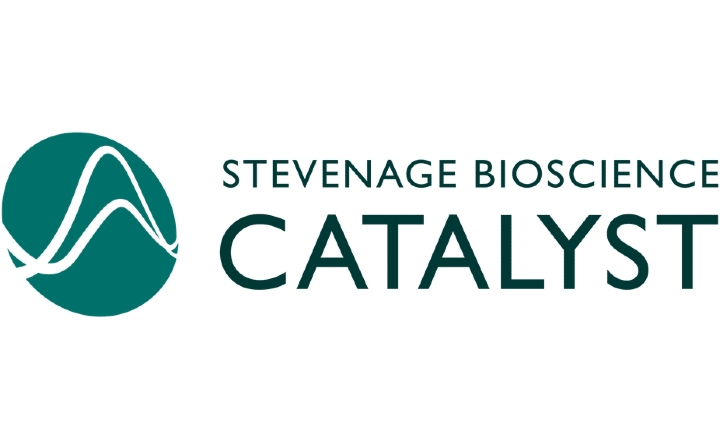
Programme
Digital Catapult


Infrastructure
Key sectors



Digital Catapult breaks down barriers to scaling up by de-risking innovation, opening up new markets and supporting scaleups to responsibly shape the products, services and experiences of the future. Supporting scaling and pipeline businesses through accelerator and open innovation programmes, it drives early adoption of advanced digital technologies.
Since 2018, the Catapult has supported more than 3,000 companies in 50+ accelerator cohorts. Collectively, these companies have raised over £556 million and created over 2,000 high value tech jobs.
Digital Catapult’s flagship support system FutureScope, launched in 2021, brings together a diverse range of acceleration programmes for early stage and scaling businesses. These foster collaboration across technologies, business stages and markets and address real-world challenges through innovation in immersive technologies; artificial intelligence and machine learning; future networks, including 5G and IoT technologies; and distributive systems such as distributed ledger technologies.
The Catapult offers participating scaleups access to facilities including labs and testbeds. Tailored support, mentorship and a masterclass series are designed to help scaleups identify fundraising options and access finance. Further support focuses on business ethics.
In 2023, Digital Catapult launched the Innovate UK Bridge AI programme, a £100m programme and fund in collaboration with Innovate UK and The Alan Turing Institute to drive the adoption of AI into four industries in the UK which have been identified as having significant opportunity which is not currently being leveraged: Construction, Transport, Agriculture and Creative industries. The funding targets AI developers, early stage scaling and scaleup companies in these sectors who want to develop / adopt AI into their businesses.
Created in 2013, the Catapult has centres in London, the North East, the Tees Valley and in Northern Ireland. It is government supported and works with a nationwide network of partners.
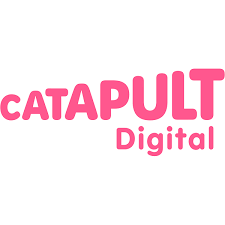
Programme
Level39


Infrastructure
Owned wholly by the Canary Wharf Group, Level39 launched in March 2013. It supports fast-growth early-stage and scaling businesses in tech sectors. The 80,000 square foot innovation space in Canary Wharf’s One Canada Square offers to its members access to customers, talent and flexible infrastructure.
The hub is home to 180 pipeline and scaling businesses and operates on a membership model which also includes an Ecosystem Membership – a virtual membership, for overseas entrepreneurs looking to tap into and build their business profile in the UK. The workspace offers a dynamic ecosystem giving scaleups access to mentors, investors and peers, as well as events that encourage collaboration and partnerships.
As a subsidiary of the Canary Wharf Group, it offers flexible space to ambitious and scaleup companies many of whom lease space in the East London business district. Level39 is developing its role in the scaleup ecosystem in response to member needs. This includes investment in new advanced technology for event space, meeting and board rooms as well as enhanced quiet zones and collaboration and wellness space.
Additionally, Level39 works with organisations such as InChorus, London & Partners, Innovate Finance and a pool of mentors, investors and partners to provide support to members in areas such as funding, access to customers, ED&I, international markets and talent. To date, Level39 member companies have raised over £1bn in finance.
In the last 12 months the Canary Wharf Group, in collaboration with Kadans Science Partner, secured planning approval to develop a commercial health and life sciences building at the North Quay site, to support the existing health and life sciences community across Canary Wharf. The 23-storey 823,000 sq ft tower is expected to be completed in 2027 and will be the first of its kind vertical campus, Europe’s largest and most technologically advanced life sciences facility.

Programme
Scale Space [2023]


Infrastructure
Key sectors














Scale Space White City is a 200,000 sq ft innovation and entrepreneurship hub developed in partnership with Imperial College London (ICL). Situated in ICL’s White City campus, the purpose built hub which leveraged the insights of the ScaleUp Institute in its development, co-locates member businesses with Imperial College Business School to foster collaboration, access to talent and provide developmental opportunities to leaders.
Its mission is to help businesses scale up by creating a community connected to the talent and expertise of world-leading universities – including the Imperial College London and the University of Nottingham – along with the UK’s leading digital venture builder, Blenheim Chalcot.
Within Scale Space, members collaborate, share best practice and facilitate connections between customers and suppliers through regular meetups and professional and social networking events. These connections give scaleups access to essential resources such as talent, research, contacts and know-how accelerating their growth.
Members are invited to participate in facilitated networking events and roundtable discussions, fostering the exchange of challenges and knowledge and promoting collaboration. Members also have access to a digital community platform, enabling further connections with peers along with access to research and insights on various business growth topics from Blenheim Chalcot, the universities and their expert partners.
Member scaleups can connect with students and graduates looking for industry experience and job opportunities through the Scale Space Careers Fair, attended by over 300 students each year, and through one-on-one support from a dedicated talent specialist.
Other benefits for members include access to a curated list of trusted service providers. These include scale up specialists in accounting, legal, PR and marketing, R&D and learning and development as well as suppliers of laboratory equipment and consumables. Regular ‘lunch and learn’ and other learning and development events are hosted by Scale Space’s service partners and community members.
In the last 12 months, Scale Space has developed and brought onto market an additional 20 ‘serviced labs’ and has achieved over 99% occupancy. A total of more than 100 companies are now represented across its membership base including Imperial’s I-HUB building and Scale Space Nottingham.
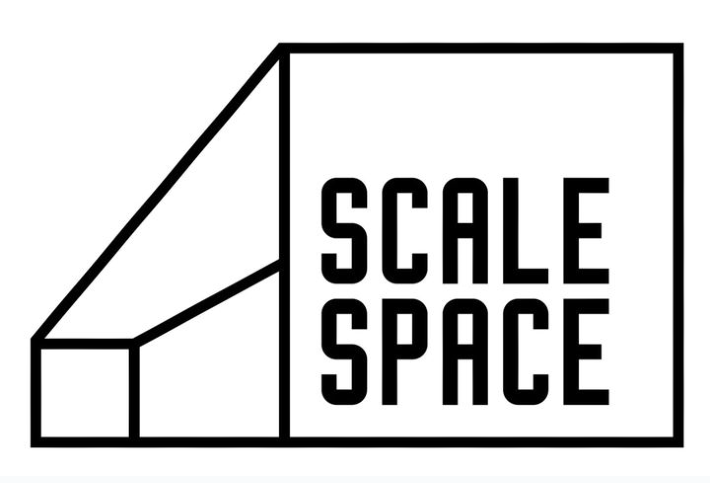
CONTENTS

Introduction 2023

Chapter 1 2023
The ScaleUp Business Landscape

Chapter 2 2023

Chapter 3 2023


Share